Youth on Youth
Free Street Theater’s Youth Ensemble and The Young Fugitives
A series that explores youth ensembles in Chicagoland, the communities that encourage them, and how young people create theater for young people.
When it was founded in 1969, Free Street Theater (FST) was one of Chicago’s first racially integrated ensembles and since its inception has taken its art and activism to the streets, making theater for, with, and by the people. Free Street’s recent projects include Dope!, a 420 story opus coursing the life of a joint, and Nerds, Sluts, (Commies!) and Jocks, consisting of musings on the power of labels with a puppet Foucault. Every summer FST’s youth ensemble performs in Chicago’s parks, most recently creating site-specific pieces. Free Street also regularly opens their Pulaski Park space to projects in need of a home, including fellow youth ensemble The Young Fugitives (TYF). TYF just closed a sold-out performance at FST of Track 13, The Deonta Mackey Project, about the sixteen-year-old Chicagoan killed by police after attempting to rob an off-duty Cook County sheriff last February. Ensemble members between both companies overlap, and I sat down with Valeria Nava, Seline Racey, Jesse Murphy, Frances Herrera-Lim, Elijah Ruiz, Patrick “Patches” Blanton, and A.J. Smith to hear their take on youth and theater. When I asked about the art they’d like to create, Patches summed it up: “We’re already making it.”
Free Street Theater at Pulaski Park Fieldhouse
Youth
Seline: Youth theater in Chicago is very condescending.
Jesse: “Look at this teen show!” They’re glorifying it in a way that isn’t really glorification.
Elijah: There’s a bunch of similar theater with youth, where they’ll stand there and talk about their problems. And it’s really boring. “Oh, I was walking down the street- and I got shot.” No one wants to hear that…
This was met with laughter, and shouts of “Seriously?!”
Elijah: But still—that’s not the way people want to hear it, so that’s why we’re trying to do something different—so that it actually can get heard.
Seline: They become “guns and gangs are bad, kids” shows. And that’s what’s different about us—we don’t do that.
Patches: Young people need to reach a particular age—eighteen-years-old—before they can be considered adults and before their knowledge, perspective, and talents count. Because of this, we don’t think about kids when it comes to theatermaking…
Elijah: “He’s good—for a kid.” That’s why it really bugs me when it’s “youth theater,” and not just theater period.
Patches: But there are also tons of other people that are underestimated. It’s queer bodies, bodies of color…
Seline: That’s theater in general.
Politics
Seline: With Cold Summer, The Young Fugitives were censored by After School Matters (ASM) and didn’t have anywhere to go. Despite that, FST was willing to house us. We critiqued Rahm Emanuel, but we didn’t do anything wrong. We portrayed him as a Velociraptor.
Valeria: The ASM representative said there was too much swearing but—
Celine: In previous years in ASM we swore and dealt with these issues but—
Valeria: It was more political.
Celine: So now we’re swearing with reason and they have a problem with it.
Elijah: It’s not the city of Chicago that has a problem with the mayor. It’s the mayor that has a problem being critiqued. Foucault said that when a major power feels threatened, [it’s] going to try to crush the opposition. And that’s why they censored this play.
Jessie: We were like, are we gonna get paid?
Seline: And we did because we put on a fake improv show.
Valeria: And then we had our secret show [at FST] and we felt like rebels.
Alternatives
Patrick: When I think about TYF and how it differs from FST’s ensemble—we can set our own deadlines. With [FST’s} “The Park is the Place,” we have to have a show every week, where with TYF, we’re working towards a goal.
AJ: We both want to make theater accessible and produce experienced actors.
Elijah: During rehearsals for The Deonta Mackey Project, we only meet twice a week so it’s more intensive.
Seline: We’ve been talking about these issues for four years, so we can go deeper.
Elijah: We were exploring one side: we don’t like cops. They harass me, but the other side is when your home is getting robbed….
AJ: We can talk about how shitty cops are, but then what is the alternative? How do you go about making a better world without cops?
Valeria: Deonta Mackey’s story was posted on Facebook. A lot of adults…weren’t saying the words “he deserved it,” but it seemed that it was taking on the perspective that he was at fault. That sparked us to want to build a play about it and get teenagers to speak up.
Seline: And to not think about it in the same way—how the media shapes it.
Jesse: There was one title that called him “Thug Teen.”
Frances: And if it were a white kid, would it be the same article title?
Hopes
Jesse: I think theater could enlighten people, but right now it’s more of an escape.
Elijah: In a perfect world, it would get people to question what’s going on around them and what’s going on with themselves. When I hear a rap song, I research the lyrics—or if I hear any song, I’ll research it because I like it. That same thing could apply here. You see this show and you like it. And you research more about it and with that it gets bigger and bigger, and more people start thinking, and it will be…revolutionary.
Jesse: That’s radiant effect.
AJ: It’s a matter of fighting the good fight.
Elijah: I’m gonna make a change though, so put that down.
Look for Free Street’s upcoming production of Dope! and The Young Fugitives’ remount of Track 13, The Deonta Mackey Project this winter.
Up next: Tofu Chitlin’ Circuit

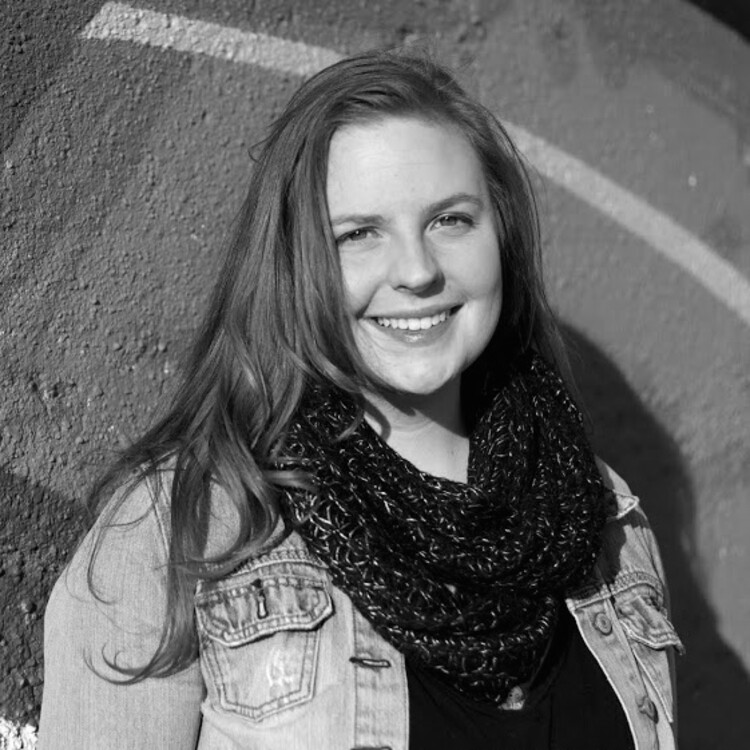
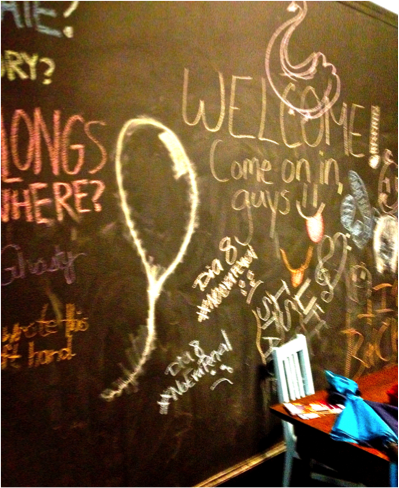
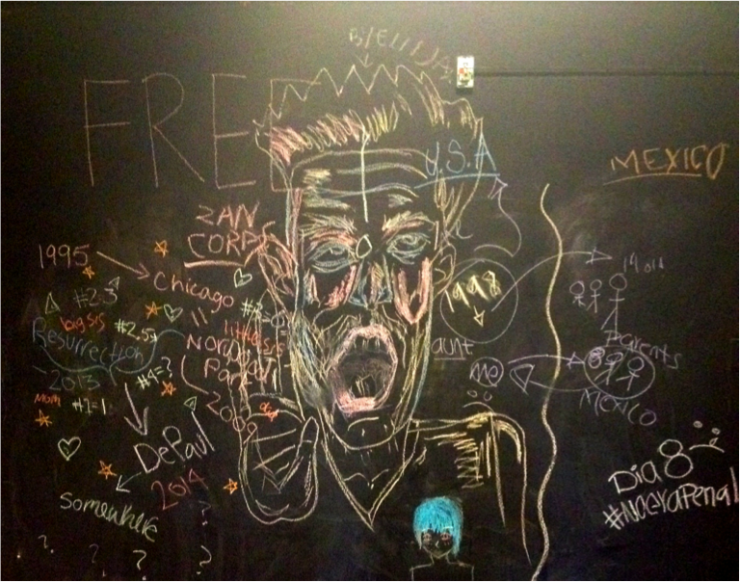
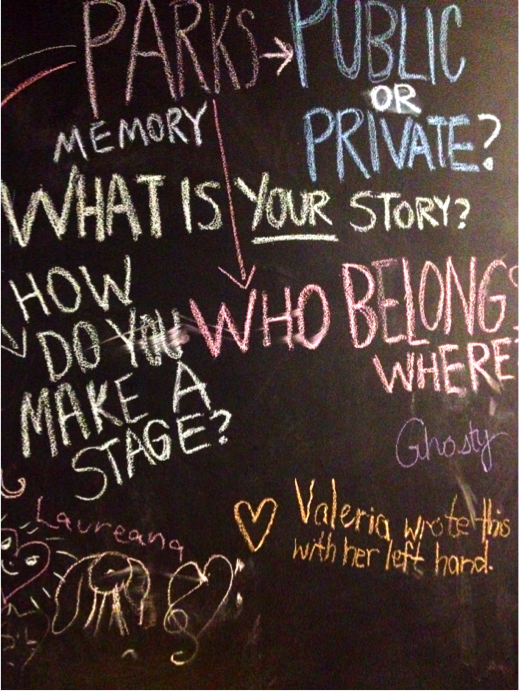
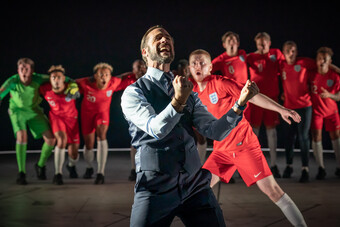

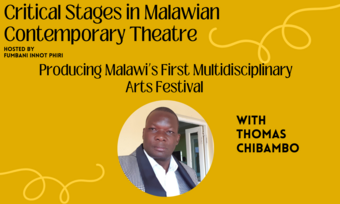


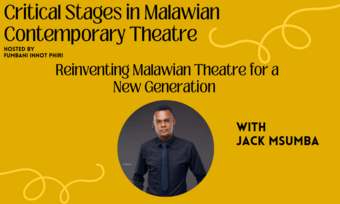

Comments
The article is just the start of the conversation—we want to know what you think about this subject, too! HowlRound is a space for knowledge-sharing, and we welcome spirited, thoughtful, and on-topic dialogue. Find our full comments policy here
This is incredible! Great work and hope is being harvested in Chicago, and I am so glad that we have the privilege to get this inside look. I look forward to more HowlRound posts that allow us the ability to hear these youth voices -- diverse, beautiful and marginalized.